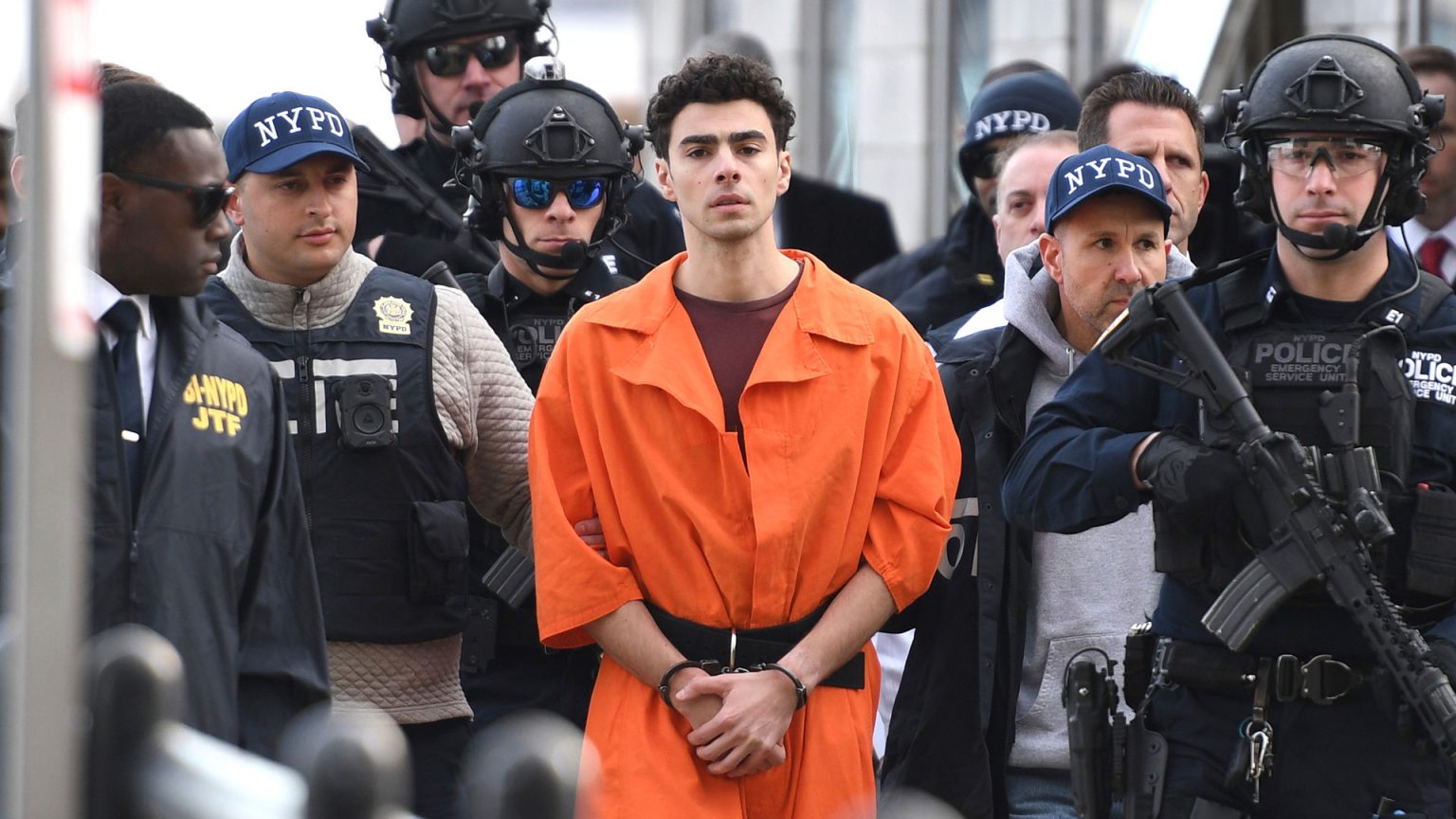Luigi Mangione, accused of murdering UnitedHealthcare CEO Brian Thompson, began 2025 confined to a small, rat-infested cell in Brooklyn’s Metropolitan Detention Center (MDC). Held in solitary confinement within the Special Housing Unit (SHU), Mangione is isolated from the general prison population, including high-profile inmates like P Diddy. He faces two indictments related to the December 4th shooting in Midtown Manhattan and may remain in the dilapidated MDC, notorious for its violence, unsanitary conditions, and understaffing, for months. His current existence is stark: confined to a six-by-nine cell for 23 hours a day, receiving meals through a slot in the door, and shackled except when locked in the shower. His limited one-hour out-of-cell time, often only available three days a week due to staffing shortages, offers a grim choice between showering, making a phone call, or solitary exercise in a small, fenced-off area.
The harsh reality of his situation, coupled with the cacophony of a prison environment filled with the sounds of psychiatric patients, drug withdrawals, and constant communication attempts between inmates, is likely taking a heavy mental toll on Mangione. Sleep is difficult, often achieved by wrapping jumpsuits around heads in lieu of pillows, and the lack of a clock disrupts any sense of normalcy. Limited access to external stimuli further compounds the psychological strain. While there are reports he may be able to acquire an MP3 player, the impracticality of charging it and the cost of downloading music render it largely useless within the SHU.
The timeline leading to Mangione’s incarceration reveals a calculated and chilling sequence of events. Thompson, in New York for an investor conference, was executed on December 4th as he walked to the Hilton Midtown. Surveillance footage captured the masked gunman, who then fled towards Central Park. Subsequent investigations revealed disturbing details: the words “deny,” “dispose,” and “defend,” echoing a book critical of the healthcare industry, were found on the ammunition. The suspect, identified as having arrived in New York by bus weeks earlier, discarded a burner phone near the crime scene and later left the city via interstate bus. Mangione’s arrest at a Pennsylvania McDonald’s revealed a three-page manifesto, fake IDs, and a gun similar to the murder weapon.
Mangione’s current conditions in the SHU are expected to change with a transfer to the general population, although the timing is uncertain due to staffing issues. This move would introduce him to a different social environment, interacting with other inmates who may be more intellectually stimulating. However, the physical conditions within the MDC remain consistently poor, regardless of housing assignment. Rodent infestations are rampant, forcing inmates to barricade their cells with towels at night. The same substandard food, clothing, and facilities are shared by all, with segregation serving primarily as a safety measure rather than an improvement in living standards.
Sam Mangel, a prison consultant with clients at the MDC, provides further insight into Mangione’s situation. He describes the psychological impact of confinement, emphasizing the initial shock and withdrawal that inmates experience as the reality sets in. Mangel stresses the importance of adapting to the prison environment, advising Mangione to maintain a low profile, observe his surroundings, and heed the advice of seasoned inmates. He cautions against attracting attention and recommends blending into the background to avoid conflict and ensure safety.
Mangione’s background as an Ivy League graduate from a prominent family contrasts sharply with his current predicament. He reportedly suffered from chronic back pain and expressed frustration with the American healthcare system. His upcoming court appearances, scheduled for January 18th in federal court and February 21st in state court, will determine the next chapter in this complex case. As he navigates the harsh realities of prison life and awaits his legal fate, Mangione’s story remains a stark reminder of the consequences of alleged violence and the challenging conditions within the American correctional system.











